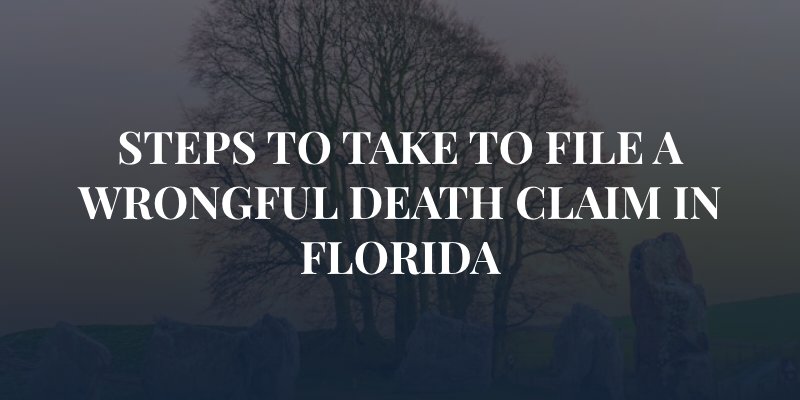
In Florida, civil law holds careless, reckless, or intentionally wrongful individuals or business entities accountable when their negligent actions cause death to someone else. A wrongful death claim in Florida cannot return a lost loved one, but it provides family members with financial compensation and a sense of justice and accountability. A wrongful death claim is a civil action seeking monetary compensation from an at-fault party. It proceeds independently of any criminal action in the same case. In a wrongful death claim, the courts allow close family members of a deceased injury victim to recover compensation for the loss of a provider, whether that was a family income provider or a provider of household services.
If you’ve lost a loved one due to another party’s actions or negligence and are considering a Florida wrongful death claim, it helps to know the steps for filing this type of action.
Like all states, Florida limits those eligible to file a wrongful death claim only to those family members who face financial impacts from the death. This prevents distant family members from exploiting the death for financial gain. In Florida, the following family members may benefit from a wrongful death claim:
Typically, the person named as an executor or personal representative in the decedent’s estate plan or last will and testament serves as a representative and files the claim on behalf of the close surviving family members. In most cases, this is one of the above close relatives, but the court may appoint a representative if the only surviving family members are minor children.
Less commonly, a dependent sibling or other family member who depended on the decedent for financial support may file a wrongful death claim in Florida.
In Florida, close family members must file a wrongful death claim within the state’s two-year statute of limitations. Some exceptions to this limit exist, for example, victims of medical malpractice may have extended time. The time limit may be tolled, or extended, if there was a cover-up or fraud to disguise the cause of death, when the defendant in the case is missing, or when the cause of death wasn’t discovered until some time later.
The following steps are a helpful guide to filing a wrongful death claim after the loss of a close family member in Florida. After determining if you are eligible to file and meet the deadline of the statute of limitations, do the following:
When a Florida wrongful death case requires court litigation it is a longer process, but often jury awards for damages are more than the victim would receive in a settlement.